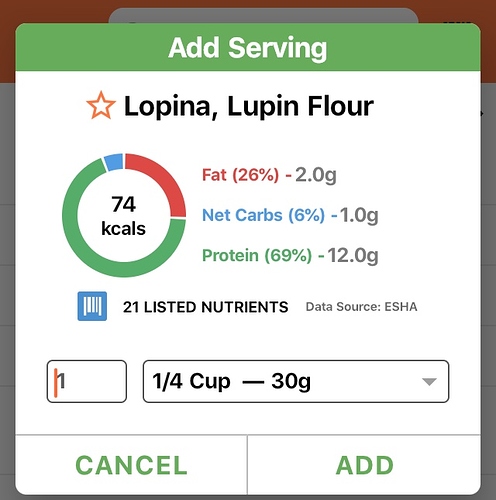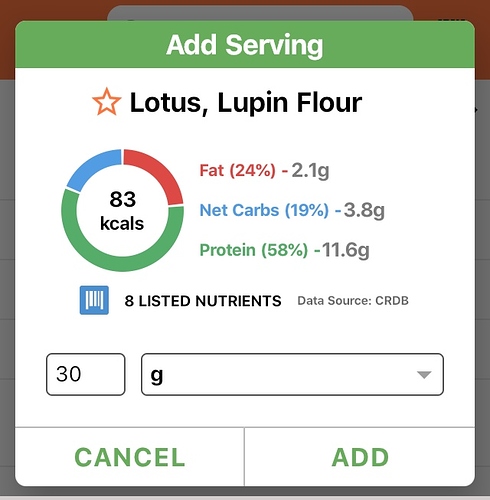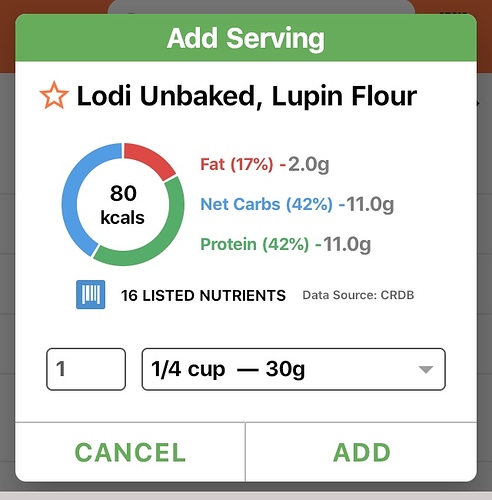When I get home from work I’ll find it and post it here. Unless someone else does so first. Calling @PaulL I think you were the original linker.
'Good' Carbs?
Good point! When your taking the accompanying nutrients out of sugar you are refining it into pure sugar, those accompanying micro-nutrients are what help the human body process that sugar correctly!
Also when you eat fat with lots of sugar/starch that is the worst thing you can do! (future CHD and CVD with time) …in other words I would not eat like that too often! Irregardless of the definitions of a “refined” carbohydrate
Refining corn starch by adding enzymes to it, to break down the starch into fructose syrup does not elevate insulin but your body takes it and turn it directly into visceral fat (fatty pancreas, fatty liver) if your choline levels are too low.
Not exclusively in ketosis, it is mixture of glucose and ketones, in today’s industrialized world we just happen to burn more glucose than ketones, your body is made from sugar (ribo), you will never escape a glucose metabolism, thinking people in ancient time were exclusively in ketosis is the wrong way to think about it!
Your going to activate insulin whether you eat plants or meat (depending on portion size) so that whole exclusive ketosis theory is kind of silly!
Watch The Bitter Truth About Sugar, a lecture given by Dr. Robert Lustig, an endocrinologist. He goes into the biochemistry of how glucose, alcohol, and fructose are processed by the liver. Someone posted the lecture somewhere here on the forum. It is a fascinating lecture!
@VirginiaEdie That was me recently
This lecture is right up your alley @atomicspacebunny if you haven’t seen it, pure science. 
I already posted that on the forum, I love Lustig!
Seen every lecture he made!
Yes, agreed pure science! 
The difference was that for those 2 mil years the glucose came almost exclusively from gluconeogenesis. With negligible exceptions the only edible carbs contained 90+% cellulose.
I’m in maintenance, and to me the difference between “good” and “bad” carbs boils down to “if it is a whole food, with no ingredient label” it is an okay carb. I take a whole potato and bake French fries - that way I know what I’m getting. I don’t eat fruit, but if I did, I would consider it a healthy choice. Just nothing out of a bag or box. Avoiding added sugar is a priority for me at maintenance. The actual “carbs” may be metabolized the same way, but you’re still taking in added junk ingredients with processed foods.
Rereading my post I sound holier than thou. Truth be told I have enjoyed a slice every few days of 378 grain bread, but make myself read the label and remind myself about the molasses. The above advice is my goal. In other words, do as I say, not as I do!
,
Search for “Michael Eades” on YouTube. He’s given the lecture several times, and all the variants have interesting new facts in them.
The onset of agriculture is when you start seeing tooth decay in ancient man and I think that is what Tutankhamun the Egyptian pharaoh of the 18th dynasty died of (a tooth infection), at least seemingly? Pre-agriculture/pre-historic man; no cavities or dental caries? Or is it just an isolated anomaly in the archeological records? There seems to be some kind of connection between un-fermented grain and fermented grain and seeds but not un-fermented seeds?
In ancient time, I think they fermented the grain and seeds (common practice?) because it removes the phytic acid (the anti-nutrient) although they really didn’t know what that was at the time (maybe through some other type of scientific medium or paradigm?) and maybe that’s the difference between fermenting grain/seeds and not fermenting grain/seeds in contrast to dental health (at least from what I can distinguish?), I could be totally wrong but I’m seeing identifiable comprehensible patterns in this whole grain (no pun intended) agriculture thing? Perhaps fermenting grain and seed was a way to keep bacteria, fungus, mold, mildew and insects out of the food and the gut; preservation (shelf life)?
Unfermented grain + High Fructose Corn Syrup HFCS (besides causing a fatty pancreas and liver from lack of choline and time) seems to punch holes in the mucin gut lining also separating the tight junctions and through them also leading to auto-immunity diseases and associated disorders?
The Michael Eades video (thank you @PaulL) :
And for the folks who think: “Yes, but fiber…” (Thank you @CarlKeller)
My main takeaways:
- Carbohydrate is just another name for sugar.
- We get all the sugar we need from gluconeogenesis, we don’t need to eat it.
- There is no essential carbohydrate, we can thrive without quite well.
To the OP: there are no ‘good’ carbs, only bad and badder carbs.
How does a ketogenic diet actually work, ie how does 'eating fat burn fat'?
Don’t mind it at all! Ketosis by itself means nothing to me. I spent way too long caring about crap like that, wasting money on ketone strips, ketonix, constant testing and the only thing that it did was successfully make my wallet thinner. Having a good ketone level is meaningless when that’s all it is. Convinced myself for a long time that being as heavy as I was (almost 300) and pre-diabetic that I had to be more anal about stuff like that, that attitude striped me of a lot of muscle (because I became afraid of protein) and no matter how hard I pushed I couldn’t fix it. Being a lifter prior, I knew it wasn’t my effort. Since I started tweaking everything I enjoy all the positives of keto, and no longer have the downsides. I’m lifting heavier again, have more athletic stamina, and if I do test as long as I’m clear the couple hours surrounding workouts I still register the same ketones I always have.
@lfod14 I have never tested in a year of eating this way. I have never stressed on whether or not I was in ketosis. I just eat right and trust the process. I have no worries about excess protein, I just eat what feels right. I do track food but there can be quite a varied daily swing. Over time my macros are in line with what calculators say I need mostly, a bit high on protein but I don’t worry about protein being high up to a reasonable limit. I don’t really crave more carbohydrates than I eat which is usually between 15-20 occasionally up to 28 or so. I eat this way for health and medical challenges. This has resulted in -50 lbs and a great increase in my health markers.

Eggs per 100 grams: fat 9.51gr, protein 12.56gr, carbs 0.72gr source
Beef liver per 100 grams: fat 3.54gr, protein 20.35gr, carbs 3.54gr source
Pork liver per 100 grams: fat 3.65gr, protein 21.39, carbs 2.47gr source
Chicken liver per 100 grams: fat 4.46gr, protein 16.96, carbs 0.89gr source
As Mark noted, these are ‘incidental carbs’. Eggs and liver are not nutritious because of their carb content but rather in spite of it. These are not ‘good carbs’ but ‘free rider’ carbs. Paying a small ‘carb tax’ to eat otherwise nutritious food is not a problem, which is why staying sub-20 grams per day is a good rule of thumb.
The OP asked “…if I were to occasionally indulge in carbs (and fyi I’ve been on keto a year and am currently at maintenance), what would be the healthiest ones to eat?” He means make a predominantly carb meal. My answer remains: carbs are carbs, the only difference is how long they take to become glucose. The choice is between bad and badder, only because some have a less detrimental effect than others.
For me i use lupin flour for the occasional naan. Resistant starch is interesting. I use green bananna powder ocassionally for gut health. Ive read papers saying reheated white rice is lower in carbs because the starch becomes more resistant but hard to find net carb values.
This is an absolute myth, the difference is about 30 minutes before they convert to sugar. You might leach out some of the sugars by repeated boiling but why bother? Starches are unhealthy no matter how you look at it or try to hack them.
Lupin flour, I had heard about this and saw some in the store the other day, it was 11 carbs per quarter cup. I also saw claims as low as 1 carb but I cannot see how the variation could be so wide.
I will believe the higher carb claims. I decided to avoid it because it’s a legume product and expensive too. Not worth starting into eating that to me. 



